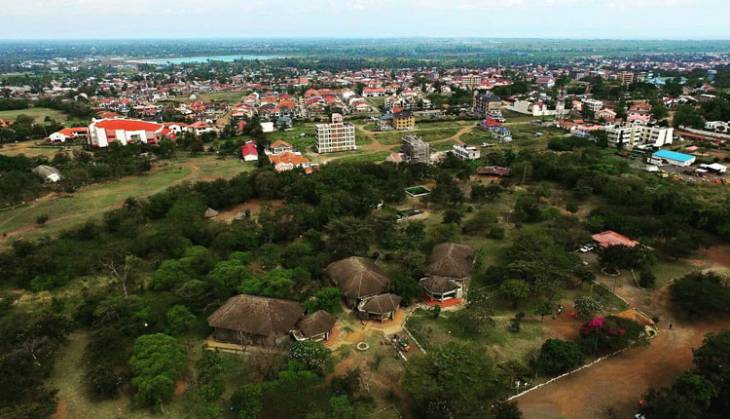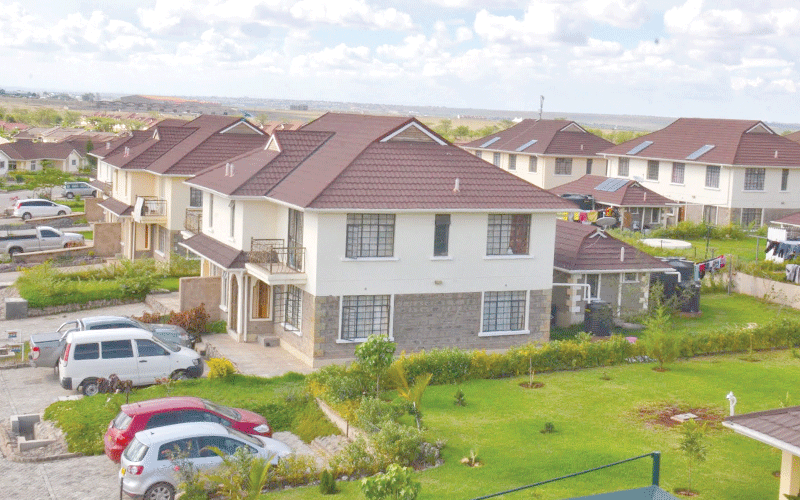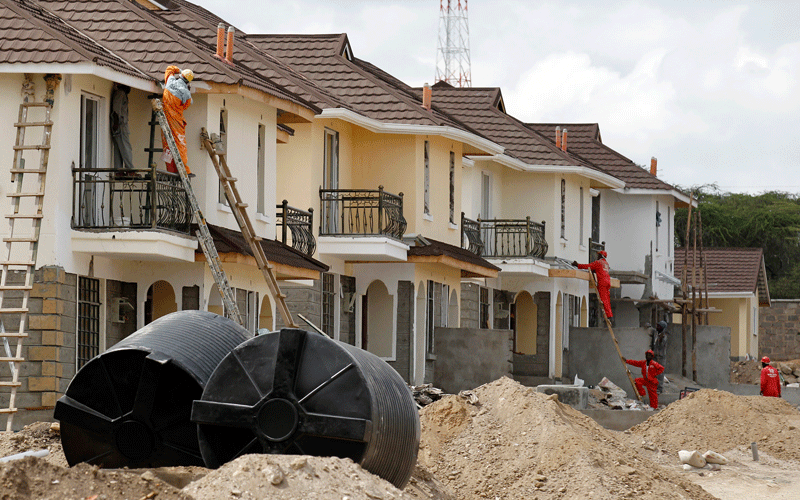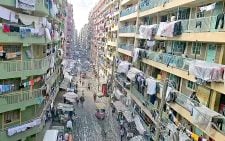Uncertainty clouds real estate sector in Western Kenya

Real estate players in the Western region are forecasting the property market could take a downward trend later in the year due to anticipated election fevers.
The realtors who spoke to Boma are of the view that the growth prospects for the industry is tied to the outcome of the August electoral process, the response in ensuring economic stability and containing Covid-19 infections.
Ben Mbato, a realtor in Kakamega county, says uncertainties that usually come with the elections could influence the industry’s market outlook for the better part of the year.
Mbato says customarily, developers will be holding to certain investment plans, especially few months preceding if they have a feeling the political environment is becoming unfavourable.
The situation, he says, could slow down activities in the sector, leading to a corresponding fall in the outlook.
“We expect the property market to take a slumber in the few months before and after the elections,” he says, adding, “Investors tend to go slow on some of their projects whenever they are not sure about the political environment, resulting in reduced financial flow in the industry.”
The developer points out that previous elections in the region have been characterised by hostilities and political antagonism, which is not good for investment in the sector, while exuding confidence that this year things could be different.
Past elections
During past general elections, major urban areas in the region, such as Kisumu city experienced significant reduction of real estate activities occasioned by prolonged political instability that accompanied the aftermath of the August 2017 elections.
This saw a relative slowdown in the sector’s growth. The sector later gradually rebuilt itself after the political turbulence eventually picked up following the historic handshake between President Uhuru Kenyatta and former Prime Minister Raila Odinga.
Mbato states that with the commitment coming from government agencies reassuring the population and by extension investors that there will be no disruption coming from the electoral process, they are positive about the sector business being stable across the year.
Peaceful polls assurance
“The signals we are getting from the government indicate that there is commitment to ensure stability during the elections period.
We are hoping that the coming elections will be handled in a more mature and controlled way so that it does not degenerate into disruptions,” he says.
He stresses that reduced political uncertainties and having peaceful elections will be vital to the continuity of the real estate sector growth.
Consequently, the entrepreneur appeals to the government to ensure a smooth and less uncertain year of elections.
“A smooth political transition will ensure the investors have confidence in putting up preferred projects,” Mbato adds.
Daniel Ogutu, a Kisumu town developer concurs, saying the election period is likely to interrupt real estate development plans and cause a slump in the economy.
He argues that the property market may become unpredictable in a few months to the polls as investors would not want to gamble with their preferred projects in a political season.
According to the developer, people tend to move away and go to their home counties fearing political hostility, as was witnessed in the past election.
Ogutu hints that housing occupancy could be affected in the event people move out from their current residences to their home counties ahead of the elections.
Such a scenario, he says, was mostly witnessed in Kisumu in the past, which saw mass exodus of tenants.
He hopes that prolonged political tensions experienced in the last elections do not recur.
“The last election brought about protracted disruptions of business activities in the industry,” he recalls, adding, “I was left with almost half tenancy in my premises during that time.”
He is also positive that efforts being put in place by the relevant government agencies to maintain political stability ahead of the polls will bear fruit.
“At this time, the political atmosphere is not as tense as it was in the previous electioneering period.
We would want to see a scenario where our election doesn’t largely affect the normal way of life for the people,” he says.
Away from the elections, the investors are optimistic that the industry will post a better market outlook this year than it performed previously under the unprecedented effects of the coronavirus pandemic.
Although the year has started with the surging positive cases of the virus in the country, the property dealers are hopeful the curve will be flattened particularly if most Kenyans get vaccinated and this will energise the sector as the economy tries to rebound.
Tom and Company Agencies Limited managing director Tom Agumbi concurs, saying there is hope for good tidings in the industry this year compared to the previous one.
Agumbi equally foresees enhanced property market niche this year, saying a lot of developments could come up as a result.
For instance, he predicts Kisumu town is likely to experience more residential housing projects, which are predominantly done by the local developers coming up than commercial properties.
“Already the sector is receiving a lot of inquiries in Kisumu specifically from potential land buyers who intend to put up new projects,” he says.
“We expect to see more property development coming up particularly in areas where infrastructural growth is being undertaken,” he adds.
The real estate agent says that the industry will start realising fortunes in the course of the year when potential developers begin to cash-in on new mega projects.
The proprietor says the lakeside city is already recording improved rental incomes and residential occupancies that picked up from last year. This, he says, is a positive pointer to better prospects ahead.
Pump resources
He urges the government to prioritise investment plans on key development pillars, such as industrial development and manufacturing, which will be critical in supporting the real estate sector growth.
“With focus given to pumping resources on the development agenda we would have more money circulating locally and this will have a positive impact on the economy growth dynamics, creating perfect opportunities for investment,” he adds.
As developers, Agumbi says they are positive that 2022 will be better. Generally, we look forward to more investments, growth and construction activities than last year, if things remain as they are.
Additionally, he says there is expectation that a lot of financial injection will be done to the economy to cushion Kenyans from high cost of living and this will accelerate the industry’s growth.
“A lot of local and international money lenders are willing to open their investment path and this will significantly support the growth of local economies,” Mbato says.
And to inspire the real estate industry’s growth, Mbato recommends that the government implements a raft of supportive policies to guide the necessary development.
He cites clear planning policies, water provision, power supply and sewerage connectivity as some of the issues that needed to be tackled in major urban centres in order to support the industry’s growth prospects.
“There is a need to implement well-thought-out policies to guide the industry’s growth aspirations,” he states.
Agumbi also roots for implementation of proper road network, water and electricity connectivity in urban centres, saying it will be integral in shaping development in the industry.















